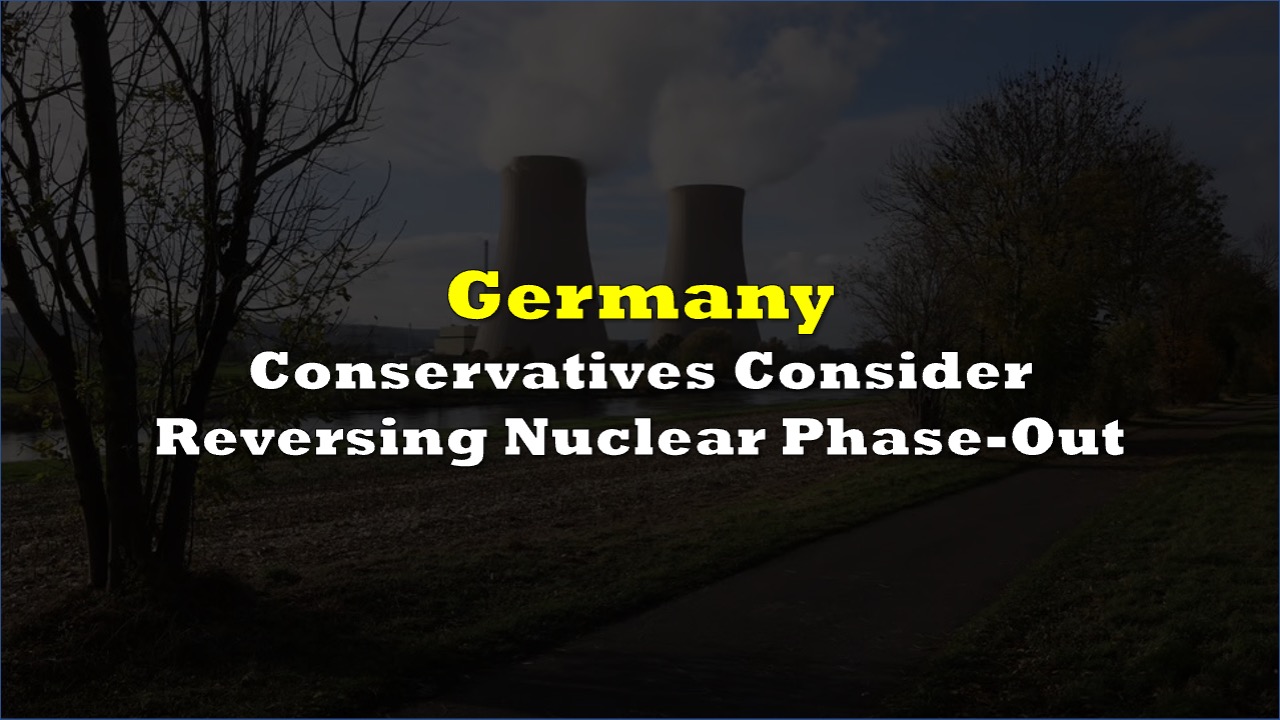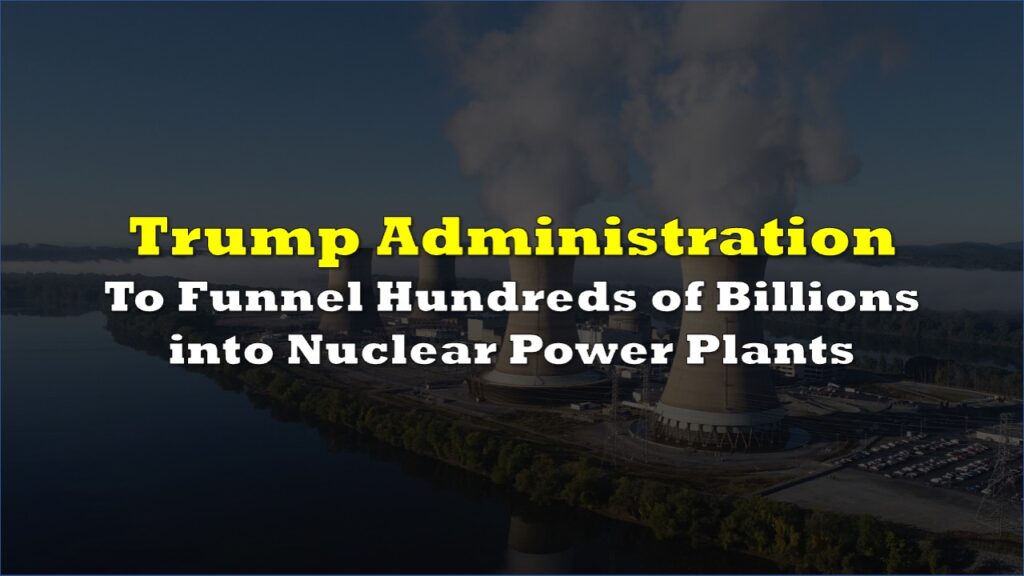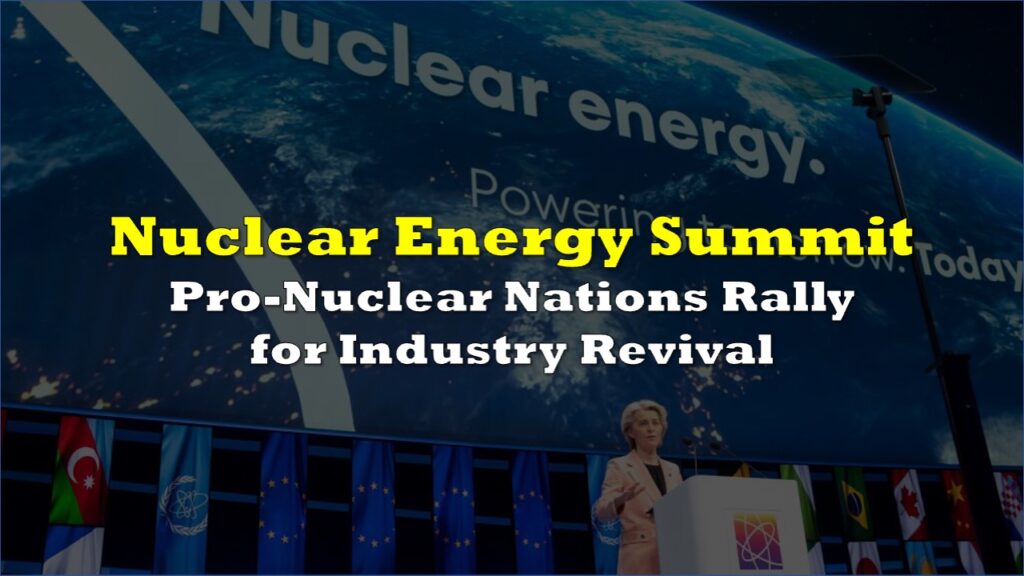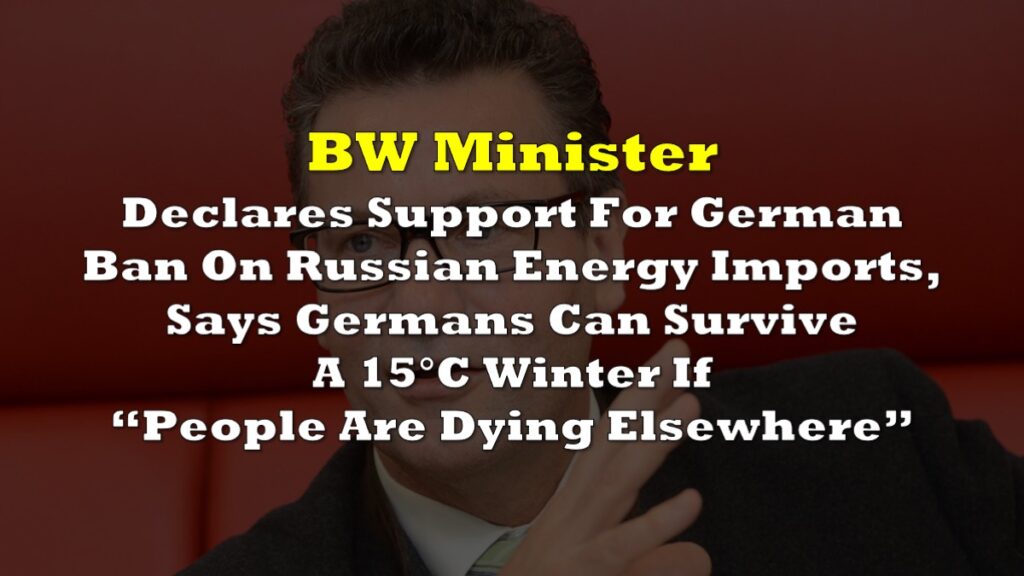Germany may reconsider its nuclear exit strategy as the opposition Christian Democratic Union (CDU) investigates the potential reactivation of six recently shuttered nuclear power plants, according to documents obtained by German media.
The conservative party’s parliamentary group has drafted a working paper requesting an assessment of whether reinstating these nuclear facilities is technically and economically viable. While not representing an official party position, the April 1 document, first reported by German newspaper Handelsblatt, has garnered attention from CDU leadership.
The new German coalition goverment announces that their coalition has agreed to examine whether it will be possible to reactivate of some of Germany’s nuclear power plants.📣💥#uranium #nuclearenergy https://t.co/rZtvfZL0ep
— 📐triANGLE INVESTOR (@capnek123) April 9, 2025
“The nuclear phase-out was a mistake,” said Andreas Lenz, a Bavarian MP from the Christian Social Union (CSU), the CDU’s sister party. “The longer we wait with reactivation, the more expensive and difficult it becomes.”
The proposal suggests that if current operators — energy giants E.On, RWE and EnBW — decline to restart the plants, government ownership could be considered as an alternative. These facilities were part of Germany’s long-planned nuclear phase-out, with the final reactors at Emsland, Isar 2, and Neckarwestheim 2 disconnected from the grid in April 2023.
Industry experts view reactivation as technically feasible. Martin Pache, who heads German operations for Westinghouse, the American nuclear company, noted that similar reactors elsewhere have much longer operational lifespans.
“The German installations have been running for 35 years on average,” Pache explained. “I do not see a reason which would preclude an extension by 20 years.” He added that some German-designed reactors in countries like the Netherlands and Switzerland have operated for half a century, while U.S. regulatory permits now extend to 80 years.
Germany’s nuclear policy has experienced significant shifts over the past two decades. The initial phase-out decision came in 2000 under a coalition between Social Democrats (SPD) and Greens. A CDU-led government briefly reversed this policy in 2010, only for then-Chancellor Angela Merkel to reinstate it following Japan’s Fukushima disaster in 2011.
The timing of this renewed nuclear interest coincides with ongoing coalition talks between the CDU and SPD, potentially creating a political flashpoint. The German Nuclear Energy Association has publicly encouraged CDU leader Friedrich Merz to pursue the restart option, highlighting growing industry pressure for a policy reversal.
Unlike older deactivated facilities that have been largely dismantled, the six plants in question remain in relatively good condition, making their potential reactivation more practical from an infrastructure standpoint.
Information for this story was found via the sources and companies mentioned. The author has no securities or affiliations related to the organizations discussed. Not a recommendation to buy or sell. Always do additional research and consult a professional before purchasing a security. The author holds no licenses.









